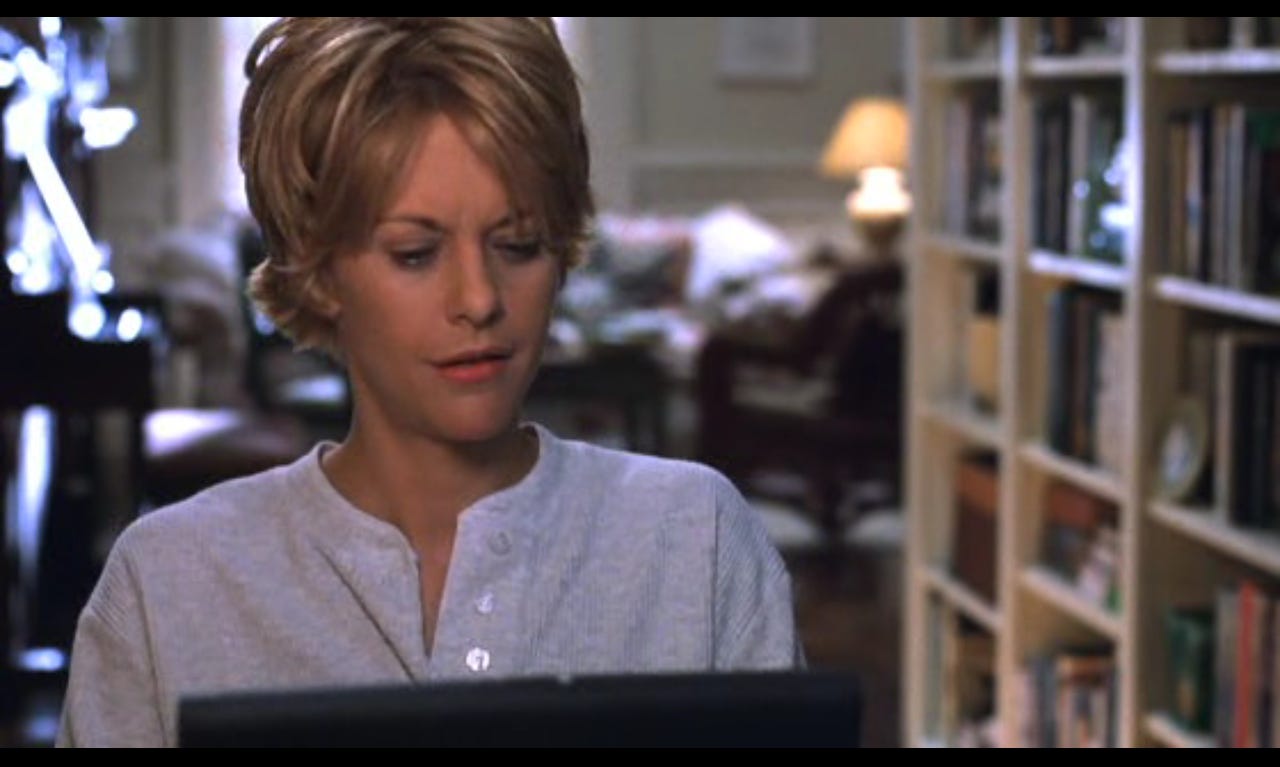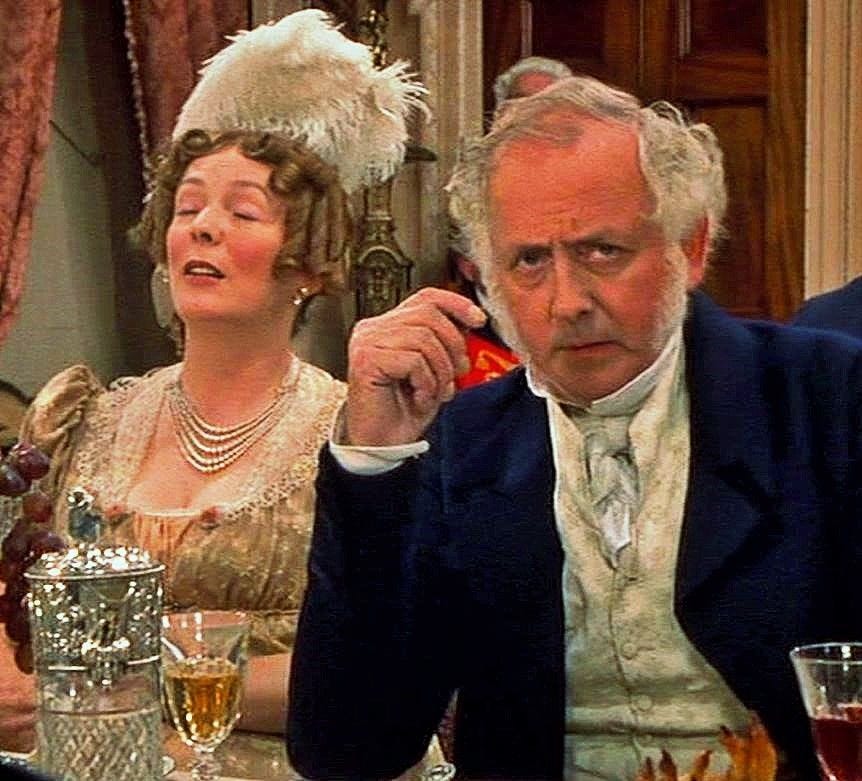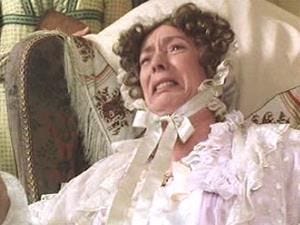I hope you did something to celebrate the 210th anniversary of the publication of Jane Austen’s Pride & Prejudice on Saturday!
I wore my Pemberley sweatshirt, my Pride & Prejudice earrings, P&P socks, P&P tote bag, and drank tea out of one of 4 of my Jane Austen mugs.
Just peak nerdom. Nothing to see here.
I’d like to reflect on P&P’s Mrs. Bennet now that our Year of Jane book club is off to the races, but first, some quick housekeeping.
I’ve had several folks suggest that I offer a paid subscription option. Basically, I want to be sure that Year of Jane book club reflections and discussions are free to anyone who wants to jump in. And I don’t plan to create exclusively paid subscriber content this year. But I may focus more energies on my Substack eventually so I’m going to go ahead and enable paid subscribers. There’s no pressure to upgrade to a paid subscription, friends, but of course I appreciate the support. I plan on keeping all content free for 2023. But if you ever want to support my writing by buying me a cup of coffee here’s the tip jar:
Let’s Talk About Mrs. Bennet
“Confession: I have read Pride and Prejudice two hundred times. I get lost in the language, words like: Thither. Mischance. Felicity.”-Kathleen Kelly, You’ve Got Mail
Same, Kathleen. And each time I re-read it, I have a bit more sympathy for Mrs. Bennet.
Perhaps I understand her chronic anxiety better as I age (my teenager often tells his sisters to quiet down and “have a little compassion on mom’s nerves”). But I think mostly I am increasingly disenchanted with Mr. Bennet and despite Mrs. Bennet’s cringeworthy behavior I have, well, a bit more compassion on her poor nerves.
After all, it isn’t Mrs. Bennet who has landed the family in a very precarious financial situation: after Mr. Bennet’s death, his wife and daughters will lose their home. The estate that houses them and provides their income will be inherited by a distant cousin, the boiled potato aficionado Mr. Collins.
While the Bennets are not as wealthy as the Bingleys or Darcys, they do seem quite well off in comparison to those of us without servants, pretty little wildernesses, and ancestral homes. But they’re in a fragile situation. Mr. Bennet has not saved up any funds for their maintenance, they will be homeless after his death, and they live in a society in which women of the gentry cannot make money except through advantageous marriages. (Some women are trained to be governesses but there is no indication that the Bennets have taken great pains to educate their daughters and they would be unprepared for that profession.) If Mr. Bennet dies before one of the Bennet girls married well, they will be penniless. And they do not have large dowries to tempt prospective suitors. Mr. Bennet gambled on having a son he could pass the estate to and he lost. His wife and daughters will pay the price for his poor planning.
Feeling a little more sympathetic to Mrs. Bennet and her obsessive maneuvering to get her daughters married off (even to the blockheaded Mr. Collins who will inherit her home)?
Of course, Mrs. Bennet’s attempts at getting her daughters well married are ridiculous because she is a ridiculous woman. She doesn’t have any sense. But I fault Mr. Bennet here, too. He married a very silly woman for her looks, is disappointed to find that there isn’t much in the way of brains to keep him interested, and retreats to his study. His interactions with his wife are comical but disdainful. Considering her anxiety, his joke to pretend he won’t visit Mr. Bingley, the only eligible bachelor in town, is cruel.
Mr. Bennet, finding himself in a marriage that is less than ideal (Mrs. Bennet really is ridiculous) entertains himself by leading his wife into hysterics, making jokes that go over her head, and neglecting his financial obligations to care for her. Here Austen touches on something that seems to fascinate her: the opportunity for marriage to improve both partners or to diminish them. What if Mr. Bennet had embraced the good qualities of Mrs. Bennet: her affection, loyalty, and good humour? She’ll never be his intellectual equal, but he did choose her. Couldn’t he have made a little effort to make her happy? Improved her mind to the best of his ability? And at the very least, not killed any affection in the marriage by constantly treating her with disdain?
To be fair, we would all probably rather hang out with Mr. Bennet in his study while he makes witty and hilarious comments than in the parlor with Mrs. Bennet and her petty nonsense. But I think she could have been a better woman if Mr. Bennet had made an effort to be a better husband. And if he had made better choices with his money, no one would have to obsess over marrying off Jane, Lizzy, Mary, Kitty, and Lydia.
I loved reading YOUR thoughts on Mrs. Bennet in the comments on the previous post and over at Substack chat. Since chat seems to be easier for some of you and posts comments easier for others, I’ll keep posting discussion questions in both places.
Here’s this week’s question: Elizabeth and Mr. Darcy’s flaws of pride and rash judgment are front and center in this novel but do the endearing Jane and Mr. Bingley also have character flaws? If so, what are they?
And this week we’re reading: Chapters 13-23 of Pride & Prejudice. Click here for the full reading schedule and details.
And here’s an ode to Austen that someone shared with me this week: Jane Austen’s Enduring Hope in Real Clear Books
If you want to receive more reflections on Austen for our Year of Jane, make sure you’re subscribed:
And if you know someone who would love this virtual book club, please share with them:
Looking forward to hearing your thoughts on Bingley and Jane!






Fully agree, Haley. I think the exemplar for marriage in Pride and Prejudice is the Gardiners, Mr. Gardiner being Mrs. Bennet's brother, which supports your suggestion that Mrs. Bennet's faults were not totally inborn but have been exacerbated by her marriage to a man who does nothing to compensate for them.
I wonder if Jane and Bingley’s fault is an incorrect application of meekness? Jane seems to harbor a false sense of humility which allows her to be walked on and over and Bingley seems to have an aversion to making big decisions on his own which comes across as a combination of laziness and indecision. Looking forward to hearing what others think!